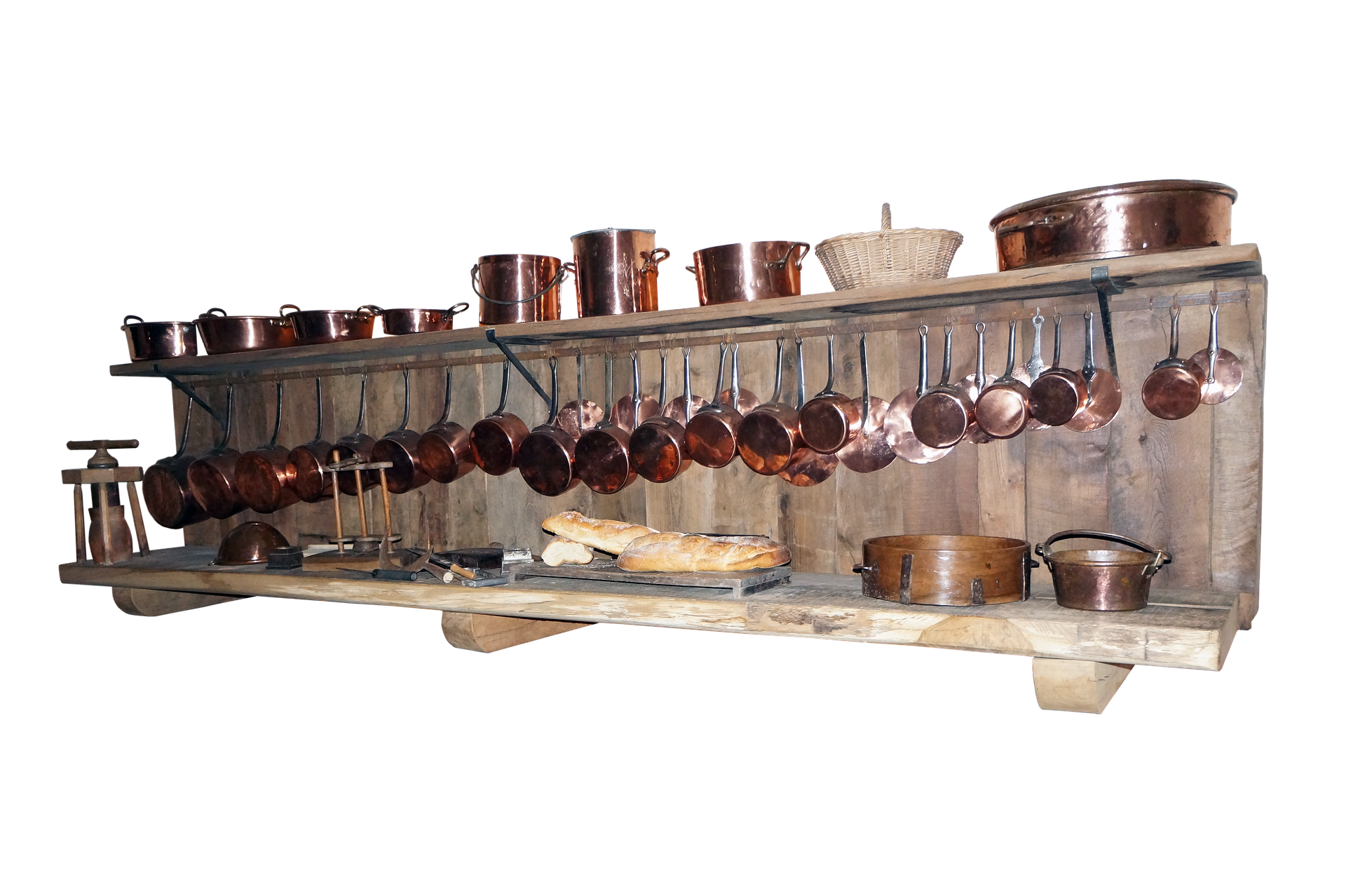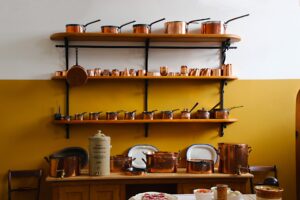Are you looking for the best tips on how to choose the right cookware, to help you create amazing meals? Do you have questions about what type of cookware is right for you and your kitchen? Well, look no further! This article will provide you with Cookware Questions & Answers to help guide you in your journey to becoming excellent at making meals by making the right cookware choices!
What is the best cookware? A lot of choices are available in today’s market, but one thing is for sure, Teflon is no longer the best choice. More and more research has proven that this coating can pose some troubling questions, which aren’t fully understood. Our advice is to steer clear of teflon.
Different Types of Cookware: Materials, Sizes, Style, Budget
There are many different types of cookware available on the market today. With so many options, it can be difficult to know which type of cookware is best for your needs. Here is a quick guide to the different types of cookware materials, sizes, style & budget considerations:
Cookware Material:
There are three main types of cookware materials: stainless steel, non-stick, and cast iron. Each type has its own benefits and drawbacks. Stainless steel is durable and easy to clean, but it can be harder to control the heat when cooking. Non-stick cookware is ideal for delicate foods or those that tend to stick, but it can be less durable than other options. Cast iron is very durable and provides even heating, but it can be difficult to clean and maintain.
 What Size of Pots & Pans Should I Buy
What Size of Pots & Pans Should I Buy
If you’re outfitting your kitchen from scratch or simply replacing a few old pots and pans, you might be wondering what size cookware to buy.
When it comes to pots and pans, bigger isn’t always better. A small saucepan is perfect for heating up soup or gravy, while a larger stock pot is ideal for cooking pasta or chili. If you’re not sure what size pot to get, ask yourself how often you’ll use it and what you’ll be cooking.
As far as frying pans go, eight inches is a good all-purpose size. If you do a lot of cooking, however, you might want to consider getting two frying pans in different sizes. A ten-inch pan is also handy for feeding a large family or entertaining guests.
How to Choose the Right Type of Cookware for Your Lifestyle
When it comes to choosing cookware, there are many factors to consider. What type of cooking will you be doing? What are your budget and space limitations? Will you be using the cookware on the stovetop, in the oven, or both? With so many options on the market, it can be tricky to know where to start.
Here are a few tips on how to choose the right cookware for your needs:
1) Think hard about how much you want to spend, or don’t want to spend. Budget limitations. Remember, for many folks, a set of cookware can be a lifetime investment. If you buy too cheaply, you’ll b replacing the cookware every couple years, or sooner. Personally, we still use cookware from our first year of marriage, 34 years ago! So, stretch yourself a bit, and get some high quality cookware.
2) Start with the basics. If you’re just starting out, you’ll need a few basic pieces of cookware, including a frying pan, saucepan, and stockpot. Look for items made from durable materials like stainless steel or cast iron. These choices will also help with your budget, because you won’t be buying a whole. large cookware set. You can add on, as you need to, one piece at a time.
3) Consider your cooking style. If you like to cook elaborate meals, you’ll need a larger set of pots and pans.
Care and Maintenance of Cookware: Cleaning, Seasoning, Storing
When it comes to cookware, there are a few things you need to keep in mind in terms of care and maintenance. First, always make sure to clean your cookware after each use. This will help prevent any buildup of residue or bacteria. Second, when storing your cookware, be sure to keep it in a dry and cool place.
However, cast iron requires a different kind of maintenance. It has to be hand-washed, without soap, and dried immediately, then a thin coating of cooking oil should be applied. Some folks don’t ever use water on their cast iron…just a thorough wiping… It also has to be seasoned at regular intervals so that food doesn’t stick to it or burn in the heat. However, don’t use too much oil, because if you don’t use it too often, the oil will sit there, and become rancid.
Cast iron cookware is best for people who have the time and inclination to take care of it.
Lastly, if you have any questions or concerns about the care and maintenance of your cookware, be sure to consult the manufacturer’s instructions.
Troubleshooting common problems with cookware
Troubleshooting common problems with cookware can seem daunting, but it doesn’t have to be. Here are a few tips to help you get started.
If your cookware is not heating evenly, try using a heat diffuser. A heat diffuser helps to distribute heat more evenly, resulting in more consistent cooking.
If your food is sticking to your cookware, it may be because the pan is not properly seasoned. Seasoning your pan before use will help create a non-stick surface. More commonly, this is a problem you will have with cast iron cookware.
If your cookware is starting to show signs of wear, it may be time to invest in new pieces. With proper care, cookware can last for years; however, if it’s not cared for properly, it won’t last as long.
Conclusion: How To Choose the Right Cookware
Different types of cookware are made from a variety of materials. The material you choose should be based on your needs and the type of cooking you do.
There are several different sizes and shapes of cookware available. The size and shape you choose should be based on the number of people you plan to cook for and the types of food you like to prepare.
Care and maintenance of your cookware is important to keep it in good condition. Cleaning your cookware after each use will help to prevent build-up of food and grease, and extend its life.
Hopefully, after reading this article you feel you know how to choose the right cookware. Your decision on what pots and pans to buy should serve you well for years.

